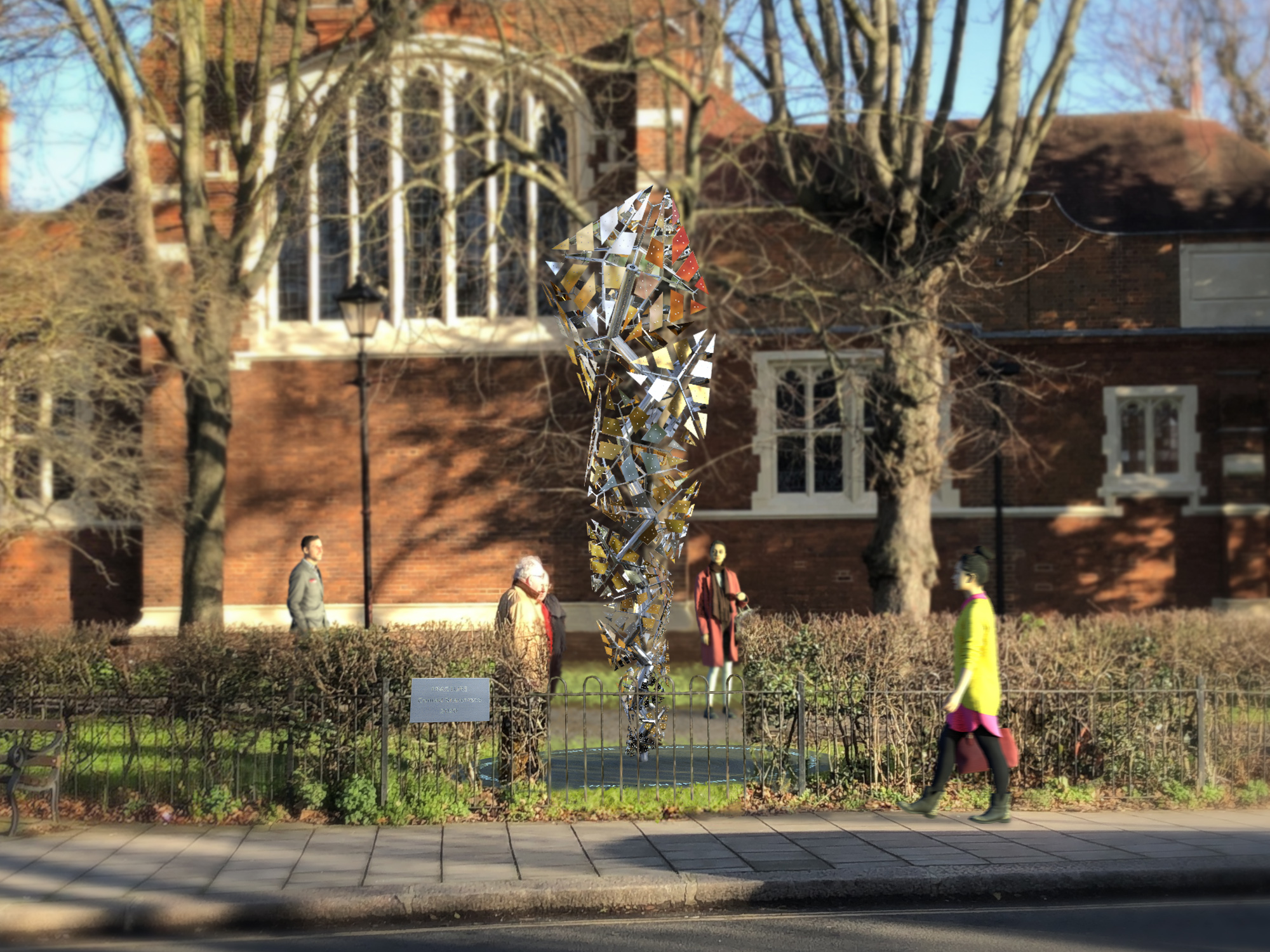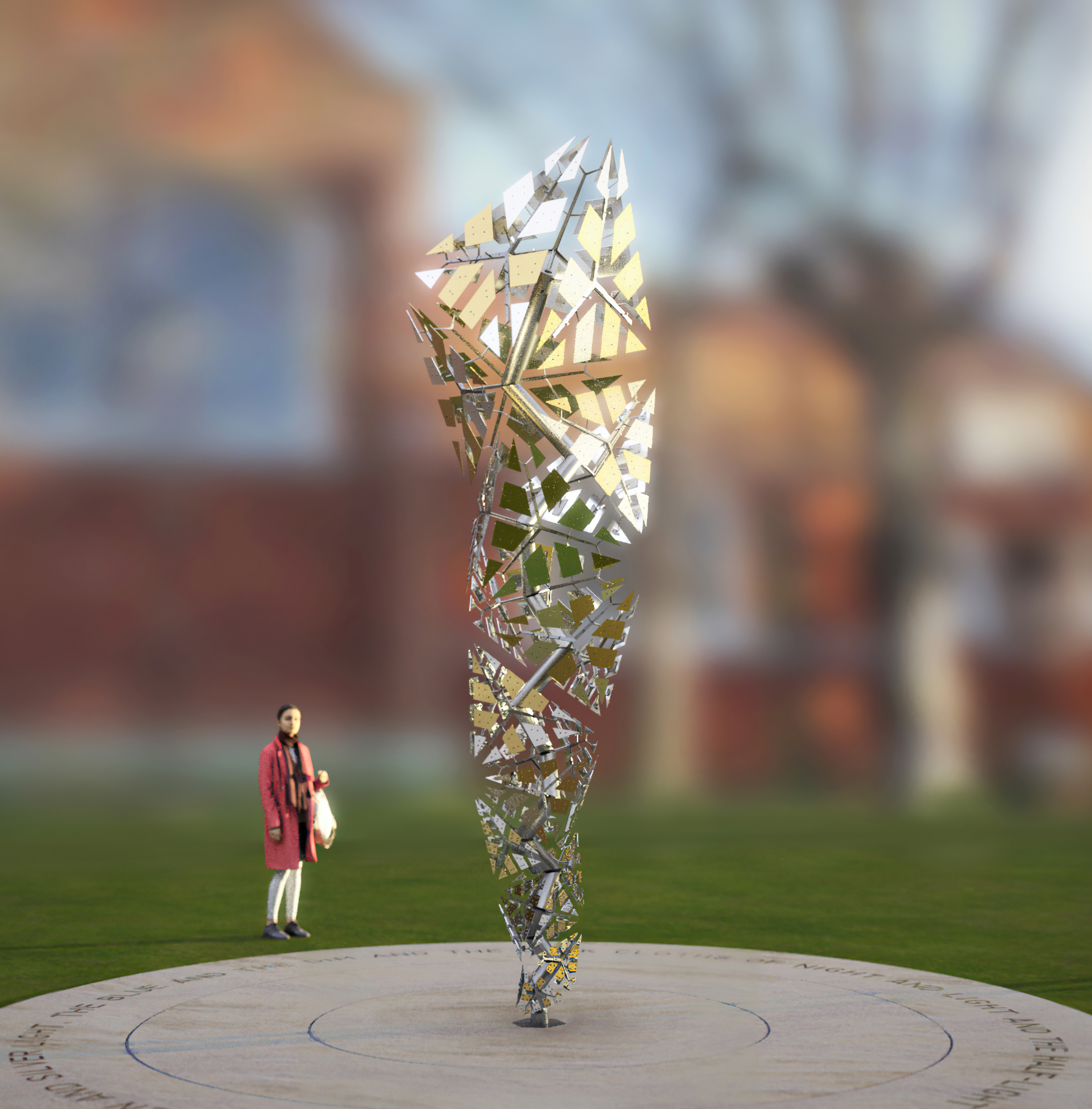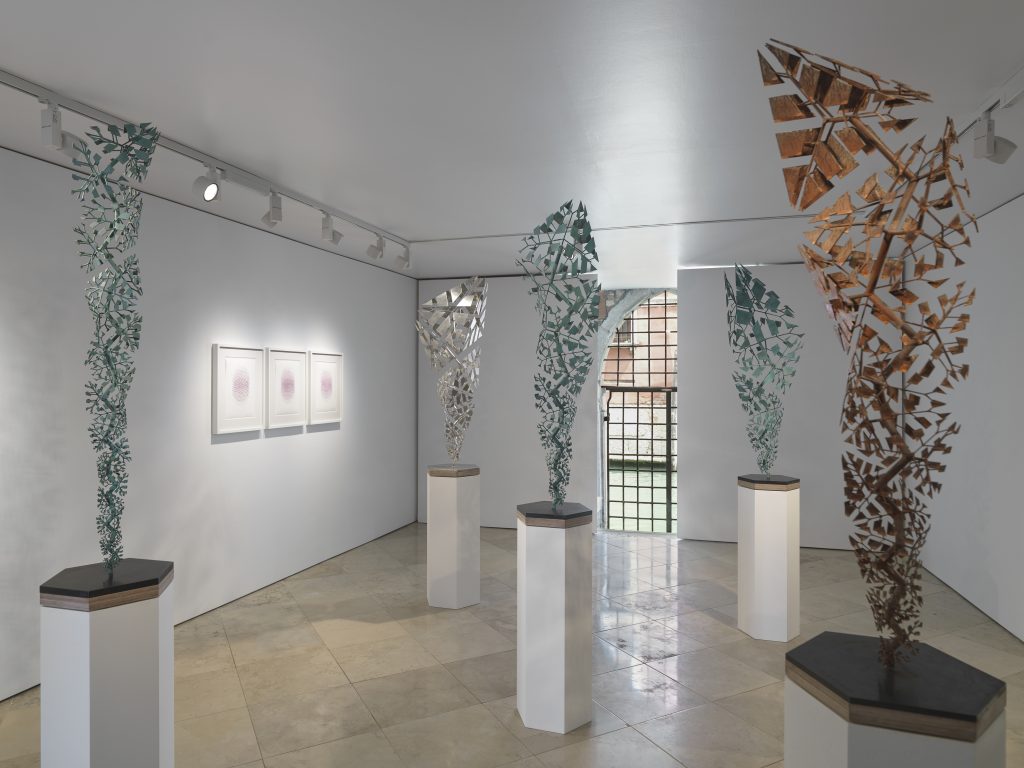Conrad Shawcross‘ new exhibition in Victoria Miro combines art and science to make breathtaking and logic-defying sculptures using tetrahedrons. A tetrahedron is a pyramid with 4 triangular sides made up of identical angles. A shape that 2400 years ago, the Greek philosopher Plato, identified as the building block of the world. This shape lies at the core of the world. A shape that makes up the water molecule, and therefore two-thirds of the world’s surface.
Unlike other shapes, a tetrahedron cannot tessellate with itself. Therefore, when one multiplies it, the basic form becomes complicated. Therefore, it cannot fill up space. Instead, it twists and turns, defying logic. The tetrahedron is a shape that can bring together the worlds of art and science to make breathtaking structures.

© Conrad Shawcross
Conrad Shawcross models scientific thought and reason into his works of art. His unique and extraordinary way of amalgamating art and science results in impressive structures. These strangely beautiful sculptures obey the same geometric rules as a helical stem. They look like twisting trunks, holding on to branches, which in turn support numerous fragments.
Like Islamic tiles in infinite geometric patterns, the columns are made of flat shapes. They seem to be organic and inorganic, interlocking the cells of plants and the brilliance of minerals. Shawcross seems to have defied gravity while thoroughly embracing geometry in this artwork. He uses contrasting metals—rusted, mirrored, and wiry, and makes them hang in space. Aptly named “After the Explosion, Before the Collapse,” the exhibition comprises sculptures that look as though a structure is crumbling into dust before your eyes.

© Conrad Shawcross
‘It’s been a risky show, with new, uncharted work that hasn’t been made before,’ he says. ‘I was trying to find the rules and systems and logic of how the tetrahedron works, and then obey those rules. But I’m still bamboozled by the way this simple shape can form these tendrils like structures that branch out and don’t join into themselves again. They’re like never-ending, enigmatic rising beanstalks.’
In Shawcross’ art, the universe comes to life and dies again. Atoms and molecules come together, but then they have blasted apart. The structures that are extraordinarily elegant and complex, look like they are held together by fragile laws; laws that are on the verge of failing. Order must become chaotic so that, in the chaos, something new can be formed.
The exhibit is a mix of Tetrahelical structures in a room called Fractures, which also features a sequence of framed photographs. Shawcross created the photographs in a dark room by firing a laser through the photographic paper which was kept behind cracked glass, He called them Aberrations in reference to the crack in the glass. The ‘Aberrations’ seem to be quite dynamic, capturing the intensity of the moment.

© Conrad Shawcross
The show also has two mechanical exhibits. First, there is a circular phalanx of conjoining mirrors, inside the Fractures roo, which unfolds into a shining shield before closing on itself like a Venus Fly Trap.
On the outside, Shawcross has installed a floating circular sculpture called “Murmuration” to represent the movement of a flock of birds. Two identical metal sieve-like circles rotate in separate directions, not regularly. As they momentarily align, a spectacular pattern of light emerges and dies away.
‘It’s the result of years of investigation into interference and disrupted surfaces,’ says Shawcross. ‘I hope it will react to the movements of passers-by and the changing play of light upon it.’
Shawcross’ works are as much a product of engineering as they are a piece of art. When someone walks past them, they will get the same sense of joy as when gazing at the stars in the sky. If you are passing by Victoria Miro, London, be sure to stop by and get caught, for a moment, in the ephemeral wonder of his creative genius.
The exhibit can be visited between 13th September and 27th October 2018.
All Images Courtesy of Conrad Shawcross and Victoria Miro Gallery.

